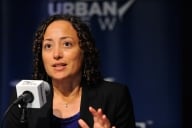You have /5 articles left.
Sign up for a free account or log in.
A federal appeals court ruled Friday that it is not clear whether public college faculty members have First Amendment protection for criticisms they make of administrators.
Such a finding might be expected to alarm faculty advocates who have argued that the First Amendment clearly provides such protection. But because the ruling by the U.S. Court of Appeals for the Ninth Circuit responded to a lower court's finding that such protections clearly did not exist, the ruling was viewed by faculty advocates as positive, even if not a full victory. The lower court's ruling was "so sweeping" on the lack of First Amendment protection that "any affirmation" of that logic would have "been deeply concerning," said Rachel Levinson, senior counsel at the American Association of University Professors.
The ruling is the latest to address the question of what impact -- if any -- a 2006 Supreme Court decision known as Garcetti v. Ceballos will have on public college faculty rights. That decision limited the First Amendment rights of public employees performing their official duties, but a footnote suggested that the decision need not apply to public higher education. While some courts have applied the decision to public higher education, others have hesitated, and Friday's decision didn't clarify anything. "Absolutely there is still uncertainty," Levinson said.
Friday's ruling came in an appeal of a lawsuit by Juan Hong, a retired professor of chemical engineering at the University of California at Irvine, who maintains that he was unfairly denied a merit raise because comments he made in faculty meetings offended superiors. Some of those comments concerned personnel decisions. Hong said that his department was relying too much on part-time instructors to teach lower-division courses, and that students were entitled to full-time professors.
The courts to date have not ruled on the substance of Hong's claims, which Irvine has disputed.
The district court that dismissed the suit did so in a way that left the AAUP and others concerned that public college faculty members could be punished for anything critical they said about their bosses. Discussing department personnel was part of the "official duties" of professors, the district court ruled, and thus under the Garcetti decision, faculty members were not entitled to First Amendment protection.
The appeals court ruling Friday was also in Irvine's favor but not on First Amendment issues. Rather, the appeals court found that all of the Irving officials Hong was suing were immune from such suits under the 11th Amendment protections given to state officials. On that basis alone, the appeals court ruled, Hong's suit could not go forward.
At two points in the decision, the appeals court noted that First Amendment issues were also raised. In one reference, the court said that "[i]t is far from clearly established today, much less in 2004 when the university officers voted on Hong’s merits increase, that university professors have a First Amendment right to comment on faculty administrative matters without retaliation." The decision concludes by saying: "We leave the question of whether faculty speech such as Hong’s is protected under the First Amendment for consideration in another case."
Levinson said that "our first choice would be a ringing endorsement from the court" of the First Amendment rights of public college faculty members. But she said that since the worst case scenario would have been an affirmation of the district court's logic on the First Amendment, the decision doesn't add to the legal vulnerability of faculty members -- and she said that was a good thing. "At least I don't think this significantly adds to whatever uncertainty is out there," she said.








